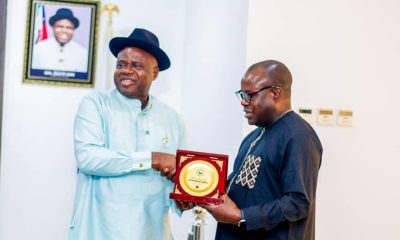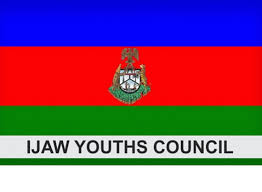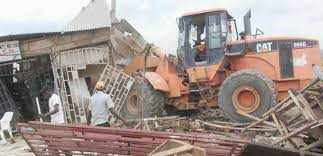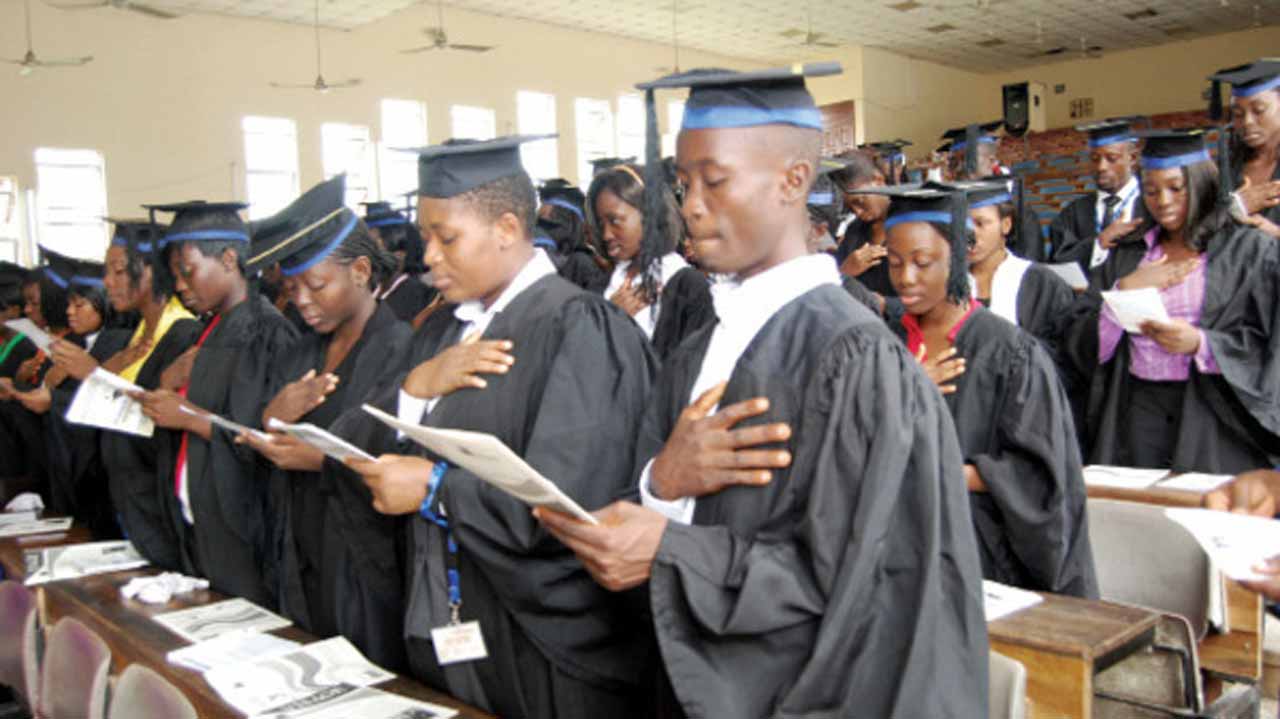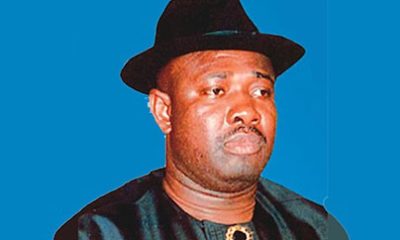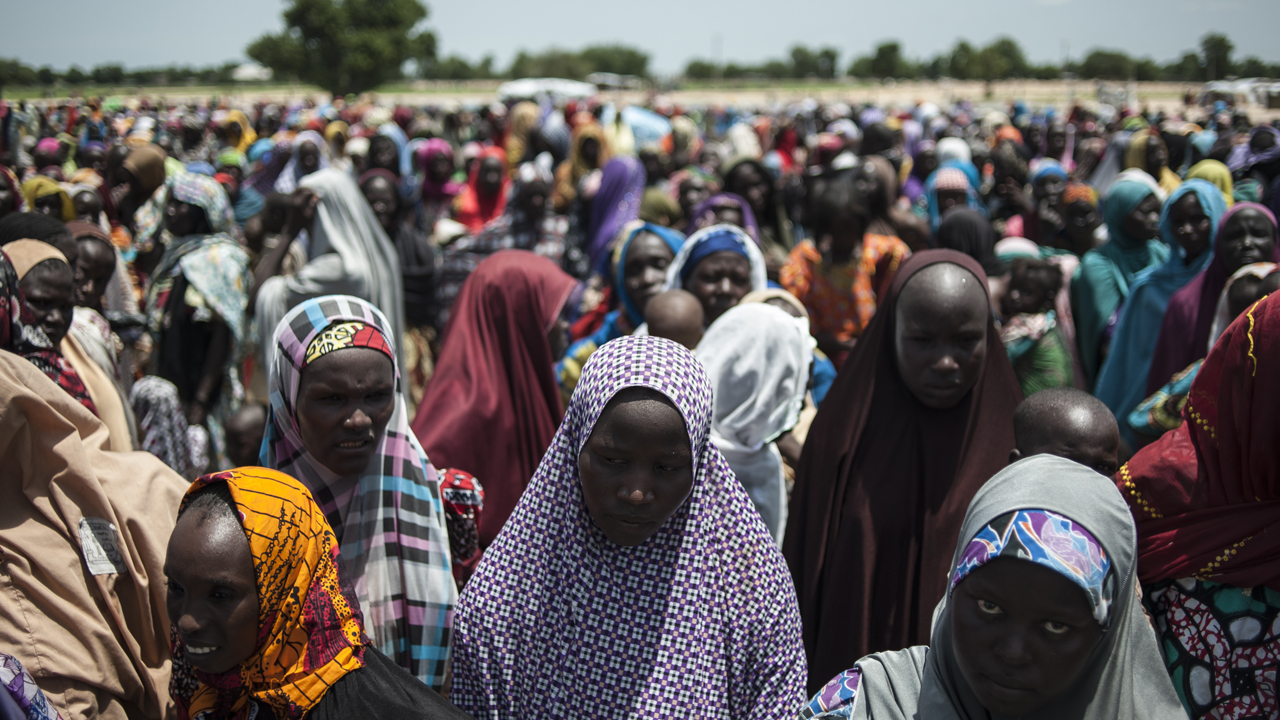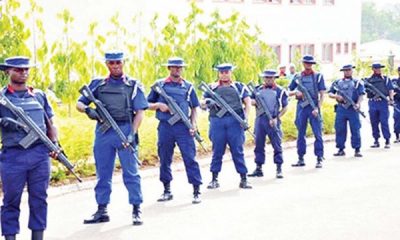Analysis
Gana: Was Amnesty A Ploy?
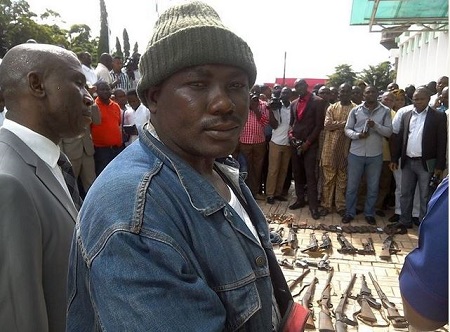
By Vincent Nyongu
The Death of the most wanted gangster, Terwase Akwaza aka Gana on Wednesday, September 8, 2020, has raised issues of concern including the the burden of trust on whether the amnesty granted him for the second time by Governor Samuel Ortom was a ploy to end his nefarious reign after failing to arrest him in a search which spanned for five years.
Gana died in controversial circumstances, just as he had lived. He wanted to be seen as a savior and a defender of the Tiv people against external aggression. But sources said that he perpetrated atrocities on his kinsmen even while claiming that he was protecting them against external aggressors.
Mr. Akwaza was notorious for alleged several criminal activities including banditry, kidnapping, assassinations, ritual killings and cattle rustling.However, much is left to be desired on whether the action of the military resulting to his death could be viewed as extrajudicial killing. Perhaps the inability of Governor Ortom to be clear on this, coupled with the request by the military that they be paid N50million bounty the Governor pledged anyone with useful information about the whereabout of the gang leader has created a feeling that Gana was betrayed using amnesty.
It all started when Governor Samuel Ortom initiated an Amnesty programme in 2015 in which Gana was the greatest beneficiary. On the last day of the programme, he turned in 84 assorted firearms and thousands of ammunitions. He was granted Amnesty and made leader of the beneficiaries. The State Government made him a revenue consultant as part of his rehabilitation and that of the other beneficiaries and he made a fortune.
Sources said he reneged after it was alleged that he sponsored the assassination of the Senior Special Assistant to the Governor on Special Security, Mr. Denen Igbana. Instead of making himself available for investigation and prosecution, he chose to go back to his life of crime. In fact, many concluded that Gana constituted himself into an alternate government and enjoyed the status of a maximum ruler in the jungle. Security sources said his area of operation was mainly what is known as the Sankera geo-political axis, which comprises Katsina-Ala, Ukum and Logo local government areas of Benue State.
He reportedly presided over the activities of that empire from the jungle of Gbise, his immediate community, where he allegedly enjoyed the protection of the community, which played a big role in shielding him from the arm of the law. The Benue State Security Council moved against him by declaring him wanted and placing a bounty of N10 million on him, which was later increased to N50 million.
The state security apparati carried out several expeditions to his enclave in a bid to arrest him, all to no avail. These efforts were later complemented by the Federal Government, which joined the manhunt through “Operation Ayem A Kpatuma” and later “Operation Whirlstroke”. All efforts to track and arrest him however, proved abortive. Meanwhile, police sources said he ran an organized and sophisticated network of criminal activities in his chosen domain and conducted affairs with an iron fist. Any challenge to his authority was met with death.
Sources revealed that at Akwaza’s orders, a few communities were razed down. His activities in five years between 2015 and 2020 led to the near total collapse of socio-economic activities in that axis. He strangulated the entire Sankera area, which used to be the most productive part of Benue State particularly in agriculture. It is this geo-political axis that gave Benue State the status of Food Basket of the Nation.
It was reported that Akwaza killed his victims with relish. He was alleged to have buried people alive and gunned down many at the slightest provocation. In this manner, several traditional rulers were killed in cold blood including the District Head of Mbayongo, Chief Aloo Alev, and his counterpart in Michihe, Chief Chiahemba Livinus Shom, in Katsina-Ala Local Government Area. His last victim amongst traditional rulers was Chief Awua Alabar, District Head of Kundav in Ukum Local Government Area, who was killed in the presence of his family.
Akwaza was at the centre of the crisis brewing between Benue and Taraba border communities leading to the death of many and destruction of property worth millions of naira on both sides. He was believed to be the man behind most kidnappings in Taraba and Benue States. His Tiv kinsmen suffered the consequences of his dastardly actions on many occasions.
“Mr Akwaza placed special levies on farmers, traders and prominent people in his domain. Failure to pay meant death. He fought supremacy gang wars with his former allies which visited devastation on several communities in Ukum and Katsina-Ala local government areas. This state of affairs prompted prominent indigenes of the geopolitical axis, including political, religious and traditional leaders to request for a second Amnesty programme, especially since the military had failed to nab him,” a prominent political leader who sought strict anonymity stated.
On Friday, September 4, 2020, Governor Ortom, while on project commissioning and inspection tour of the Sankera axis accepted the request of the leaders. The governor gave an ultimatum for those who wanted to embrace the second Amnesty to surrender their weapons on Tuesday, September 8, to become beneficiaries of the programme. Before the governor’s recent visit, major stakeholders from the Sankera area had done painstaking work to persuade those with illegal weapons in their custody to embrace the second Amnesty programme by surrendering those weapons. Such were the circumstances Mr. Akwaza found himself in the second Amnesty programme.
Police sources said in company of religious leaders, he left his hideout and presented himself at the Emmanuel Akume Atongo Stadium in Katsina-Ala in full public glare to embrace the programme. The State Security Council was holding a meeting at the New Banquet Hall of Government House, Makurdi, where the second Amnesty programme was granted.
Selected traditional rulers, prominent indigenes and security personnel took off with Mr. Akwaza and other repentant criminals from the stadium to come and present them to the Council. It was gathered that before he left his domain, he beckoned on leaders of his foot soldiers and told them that he was suspecting foul play and if eventually he failed to return, they should continue from where he stopped. On their way to Makurdi, the military intercepted the convoy at Maseje, close to Yandev in Gboko Local Government Area.
The soldiers reportedly pulled out the Katsina-Ala Local Government Chairman, Alfred Orya Atera and his security detail, a former House of Assembly member, Hon Ianna Jato, from the Chairman’s official vehicle in which Mr Akwaza was being conveyed to Makurdi. The military took the vehicle and Mr. Akwaza away. They also seized about 100other potential Amnesty beneficiaries from Katsina-Ala, Ukum and Logo local government areas. Unconfirmed reports alleged that the military killed some of the potential beneficiaries near Moji Farms after Tse-Kucha, and later killed Mr Akwaza at another location in Nasarawa State.News of this development filtered into the venue of the Expanded State Security Council meeting as unconfirmed rumors. Reliable sources revealed that most of those present, including Governor Ortom, Senator Gabriel Suswam and the Tor Tiv, HRM, Professor James Ayatse, were shocked. This prompted the abrupt end of the meeting. Governor Ortom while addressing Newsmen later stated that the convoy conveying Mr. Akwaza and other potential Amnesty beneficiaries had been intercepted and that Major General Adeyemi Yekini of Operation Whirlstroke had confirmed this and promised to get back to him.
What came next was a statement from the Commander of the 4 Special Forces based in Doma, Nasarawa State, Major General Moundhey Gazama Ali, that Mr. Akwaza had been killed in a gunfight with the military, with the picture of the wanted gangster at the back of the official vehicle of the Katsina-Ala Local Government Chairman. His death elicited mixed reactions as many thought that the state security council betrayed Mr. Akwaza. However, others stated that the military, acting the script of the Fulani Herdsmen eliminated Gana to pave way for further unhindered attacks on Benue communities.
Political pundits in opposing camps canvassed the opinion that the All Progressives Congress (APC) may have used Mr. Akwaza in the 2019 general elections and have decided to dump him on account of his insatiable financial demands, hence they decided to use the federal government controlled Army to eliminate him and put the blame on Governor Ortom.
Yet, many conversant with his criminal activities stated that it was the law of karma or retributive justice that caught up with Mr. Akwaza. They believe that the blood of his victims has cried out to God for vengeance.
Investigations, however, revealed that Governor Ortom, Senator Suswam and leaders from the Sankera axis did not reckon that the military would eliminate Mr. Akwaza on the way to Makurdi.
Findings show that the leaders were not privy to the military operation and that the military seized the opportunity to upturn a most prized security trophy that had eluded them for years. It is reported that when the news of the elimination of Mr. Akwaza filtered into the venue of the Security meeting, Senator Suswam and leaders from Sankera were dumbfounded at the turn of events.
They felt that their people would conclude that they had betrayed them and collaborated with the military to eliminate Mr. Akwaza and the others.
Security sources told DAILY ASSET that the danger therein is that Gana had a large network and it is not possible to eliminate all his gang members at the same time.
This means that his death could spark reprisals. A government house source stated unequivocally that “from the first Amnesty programme, Governor Ortom had indicated clearly that he was committed to the carrot approach especially when the military failed to stop Gana. Usually a man of his word, he could not have broken his word by arranging Gana’s elimination.
”However, the general feeling among people interviewed is that it amounted to extra-judicial killing for the military to have executed Mr. Akwaza and the others after they had surrendered. Such people consider the statement by the military that Gana was killed in a gunfight as untenable.
Others stated that as at the time the military intercepted Mr. Akwaza and his gang members, were already beneficiaries of the Amnesty programme since the Security Council had sat earlier and passed a resolution to that effect, which paved way for his anticipated meeting that never held. Conclusively, the fear is that for Gana to be killed extra-judicially a major security crisis might as well be in the offing from the Sankera axis in Benue.
It is left to be seen in the days as events unfold especially as the killed Gana’s family has threatened legal action against the Military with a demand for compensation.
Analysis
The APC Beyond Buhari, By Chidi Amuta
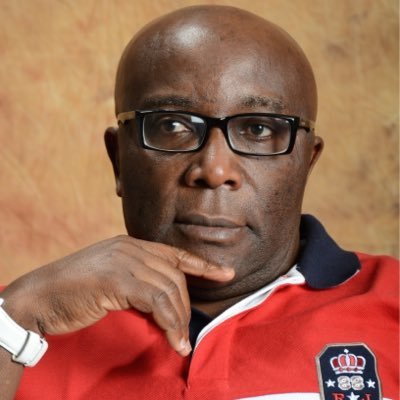
The APC was birthed out of Mr. Buhari’s resilient appetite for presidential power. Its victory in the 2015 presidential election satisfied that hunger and lavishly fed it for eight years. His victory then was a product of both his northern regional cultic followership and a nationwide rejection of Mr.
Jonathan’s bumbling presidency. Eight years afterwards, Buhari’s appetite for apex power has been fulfilled, richly rewarded and arguably squandered in terms of a credible legacy. His pet nativist hegemony project came full cycle and even overreached itself. With a largely expired national relevance, Buhari has since gathered his belongings and returned to the pastoral anonymity of his native Daura.Looking back, the coalition of parties that gave birth to the APC was an inconvenient marriage of political convenience. There was nothing in common among them. There was a pseudo social democratic CAN. There was an ultra conservative CPC literally owned by Buhari himself. There was also a nationalist right wing ANPP, and an ethno nationalist APGA. To complete the picture was a renegade and opportunistic centrist NPDP made up of a faction of governors who broke off from Jonathan’s PDP .
The cardinal objective was to cobble together a workable electoral coalition to wrest power from the PDP after 16 monotonous years. The idea of a multiparty coalition eventually gave way to the even better idea of a single opposition party. A unified party was required to win an election if the hegemony of the PDP was to be toppled. The nation was hungry for a change from the PDP whatever the name of a viable and credible opposition.

Mr. Buhari facilitated and galvanized the marriage. He provided the amalgamation with a presidential mascot albeit one with a national name recognition and leadership mythology. He also came dressed in an untested mythic garb of leadership prowess, governance prudence, barrack discipline and a reasonable level of personal integrity and austerity. Above all, he had managed over the years to build up a huge cultic following among the northern mob of rough uneducated and unemployed youth and regional power fanatics. Part of the motor park fable around Mr. Buhari was the infantile notion that once elected president, he would jail all the corrupt former government officials, recover the ill- gotten wealth and redistribute same among the poor masses. His political salesmen required no better set of unique selling points.
Thus was born the APC, a party tailored more towards wresting power from an effete incumbent than for the effective governance of a country in desperate need for responsible leadership. Given the tenacity of African power incumbents, the APC was more honed for the task of contesting the outcome of the 2015 presidential election possibly up to the Supreme Court. It spared little time rehearsing a governance nad leadership model for the nation. “Anything but Jonathan” was the slogan in town!
But when the results tumbled in mostly in favour of the APC and Mr. Jonathan conceded defeat to Mr. Buhari, it was an overrated and unprepared APC that had to set up a government and ascend the pinnacle of national power. Victory came as a rude surprise with power as an unanticipated burden. Time has passed. Buhari has fulfilled his long standing ambition of wearing the toga of President and gone home after completing two terms of eight wasted years . It is now time for the party to take stock of its stewardship and contemplate its future as a ruling party.

With the benefit of hindsight, the emergence of the APC reinforced Nigeria’s historic tendency towards a credible two party architecture as previously recognized by the military administration of General Ibrahim Babangida. To that extent, the emergence and electoral victory of the APC as and when they occurred was a positive political outcome, one which promised a great dividend for Nigeria’s democracy and future political party architecture. The new party came to power on the wave of expectations greater than its capacity and preparedness. Even then, having successfully hounded the PDP out of power at the national level, the APC had two tasks. First, it had to develop into a party with a national membership spread, credible internal democratic structure and a definable ideology to anchor its policies on. It had a mandate to rule and to govern more creditably than the party it ousted. But beyond its logo and Buhari as electoral mascot, there was nothing substantial about the APC.
Regrettably, however, the APC has not grown beyond the logic of its incoherent origins. It has turned out to be just merely a ballot paper alternative to the PDP. After close to a decade in existence, it has no ideological identity, no policy coherence, no record of sensible governance at the federal level and state levels. Admittedly, an isolated number of APC ruled states (Kaduna and Lagos especially) have managed to show signs of some progressive policy direction and arguably a bit of good governance. But the party has hardly tried to galvanize an effective grassroots membership to consolidate over eight years of power dominance at the center.
From the very top, the APC remains an embarrassing ideological proposition and oddity. I doubt that from Mr. Tinubu to the most mundane foot soldiers out there, that word ideology ever comes up even in casual conversations. I doubt that most of the party faithful have ever bothered about the meaning of the word “ideology”! But as a political organization, we need to dress up the APC and its leading lights in some ideological garb in order to make sense of their quarrels or at least give the party a reason to exist. As my friend George F. Will would insist, “We can dignify …disputes among small persons of little learning by connecting them with great debates about fundamental things.”
Let us therefore confront the ideological curiosity of the APC. Here is a so- called ‘progressive’ party led by an unabashed arch- conservative in the person of former president Buhari and now a bucaneer social democrat in the person of Mr. Bola Tinubu. This is one of the greatest ironies of recent political theory and history. Ordinarily, progressivism indicates a bias for social democracy in its dynamic context. It should signal a commitment to continuous social and economic democracy and change along progressive lines. Progressivism is decidedly partisan on the side of the masses while acknowledging the entrepreneurial class as an engine of growth and wealth creation. Instead, Nigeria’s “progressives” are a loose collection of free wheeling brief case capitalists, commission agents, primitive accumulators and racketeers in every imaginable merchandize.
The party previously led by the diehard conservative Buhari is now under the wings of Bola Tinubu. He may be sympathetic towards the plight of the masses in whose name he is mouthing incoherent policies while they bear the early brunt of his IMF-style policies. Buahri was a confused advocate of Medieval economic fundamentalism of controls and over regulation of nearly everything from domiciliation of government bank accounts to the distribution of fertilizers to peasants.
In spite of its abysmal performance in government for over eight years, the APC predictably “captured” power in the still contentious February 2023 presidential elections. Mr. Bola Tinubu, Buhari’s effective political ‘God Father’ is now incumbent president. He has accordingly, moved to rejig the leadership of the party to serve his own power ends. He has quickly hand picked a new party Chairman in the person of the former dollar-hugging Kano governor, Mr. Ganduje . He has also ousted Mr. Omisore as party Secretary.
A preliminary view of the political calculus of the party going forward indicates an entrenchment of interest in the basic regional and sectarian equations that handed power to Mr. Tinubu. The initial changes in the leadership architecture of the party indicate a reinforcement of the South-West, North East and North Western power base of the party. There also seems to be an incremental confidence in the effectiveness of a predominantly Muslim orientation of the party leadership. This much can be gleaned from the initial skirmishes around the party headquarters .
In spite of its victory and electoral majority in the number of governorships and a clear parliamentary majority after the 2023 elections, however, Mr. Tinubu now recognizes that he cannot take the pre eminence of the APC for granted. He needs to strengthen the party in order to govern and also maintain a basic continuity of political authority. He cannot easily forget so easily that the pre-eminence of the party in the present political spectacle remains tenuous. The party was substantially challenged at the February 2023 election as may become more evident when the tribunal and court challenges of the outcome are concluded. A 36% voter score of less than 8 million votes out of less than 20 million total votes cast at the presidential election out of a registered voter population of 80 million plus cannot give a ruling party comfort.
In addition, between the two opposition parties – the PDP and the Labour Party- there is enough groundswell of popular support especially Mr. Peter Obi’s Obidients to keep the APC awake for the foreseeable future. As things stand, the APC still has an existential challenge: how does it survive in and of itself as a political party? How will it persist as a ruling party in and of itself given its regional incoherence? Above all, how will it survive as a strategic national institution of democratic stability if its existence is dogged by far reaching but latent regional and sectarian under currents?
Even now on the eve of Mr. Tinubu’s first 100 days in office, there is a palpable fear that the future of the party is headed into turbulent clouds. A few prominent party faithful have resigned in protest to the recent leadership changes. Of course, the party could somehow tinker its way through this initial immediate post election patronage and pork barrel stretch of the new administration. Mr. Tinubu can expect to enjoy some party solidarity and superficial unity in these honeymoon days of anticipation of patronage and appointments by party people.
Beyond the appointment of ministers, there are still numerous boards of federal parastatals, ambassadorial positions and sundry sweetheart contracts to be dispensed. But when that is over, it will be clear that the majority of party members will have been left out in the cold. They may go shopping for other party umbrellas well ahead of the next election season.
In spite of the present appearance of camaraderie, the APC cannot hide its many headaches and underlying troubles. But in whichever direction we look, the party is threatened by internal contradictions and gaping cracks that lie deep in its very found The APC was born out of a private political ambition. It prevailed for 8 years only because it won the presidential election in 2015 against a leaderless former ruling party. Having repeated that feat in 2023 in spite of its dismal performance in government under Mr. Buhari, it is only likely to survive in power if it can transform itself from an African “Big Man” party to a broad based grassroots party. Otherwise, the future political landscape of Nigeria belongs squarely to youth based populist movements like Peter Obi’s Labour Party and its Obidients or others in that mould. The real terminal danger for the APC is in the future fights among its many ambitious contenders for Mr. Tinubu’s throne if he falters. The even greater danger to the hegemony of the APC lies in the massive discontent of the youth followership of its opponent parties.
Analysis
The Deceptive Tactics of IPOB
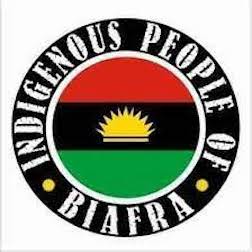
By Emeka Jerome
All warfare is based on deception. Hence, when able to attack, we must seem unable; when using our forces, we must seem inactive; when we are near, we must make the enemy believe we are far away; when far away, we must make him believe we are near –Sun Tzu
In the words of the revered war strategist Sun Tzu, deception is a critical component of war execution.
Echoing Sun Tzu’s teachings, the proscribed Indigenous People of Biafra (IPOB) has refined the craft of deception, using a tapestry of falsehoods to advance and achieve their objectives. This treatise will highlight how the group has continually employed deception as a weapon of war to deceive gullible members, keep the public attracted to them and deepen its presence in the south east. No doubt, IPOB’s ascent to prominence was founded upon a bedrock of deception right from its inception. Spearheaded by Nnamdi Kanu, the emergence of IPOB was an outgrowth of the supposedly reformed Movement for the Actualization of the Sovereign State of Biafra (MASSOB), a pro-secessionist group that had already seen its power wane and was known for its cunning activities and propensity for violence. Although IPOB came into being in 2012, Kanu had already garnered a significant following due to his inflammatory broadcasts on Radio Biafra, a responsibility he had taken on as a member of MASSOB. Recognising that the decline of MASSOB could spell the end of his influence, Kanu, aiming to secure both relevance and financial gain, intensified his facade of advocating for Biafra’s freedom.He accomplished this by spreading propaganda against the Nigerian Government and fostering optimism among the susceptible members of the public. By rebranding and emerging as a new entity, IPOB projected an image of a fresh movement seeking self-determination while carefully avoiding associations with MASSOB’s past activities. His strategy worked because in no time, Kanu assumed command over the sphere of IPOB’s operations, rapidly ascending to its helm.
When IPOB started its brand of agitation, it was cheered on. Nnamdi Kanu became an overnight messiah. The poor vulnerable uneducated market apprentices became his ardent followers. He exploited them. Kanu adequately deployed his expertise of Radio Biafra to deceive. By broadcasting incendiary messages and misinformation, he manipulated emotions and perceptions of the public to IPOB’s advantage.
The false narratives he propagated about the Nigerian Government’s actions and intentions fuelled anger and frustration among his followers. The use of hate speech and derogatory language against Government, portraying them as oppressors and enemies of the people painted a one-sided narrative of victimhood which generated sympathy for their cause, making it difficult for their followers to critically assess the situation. By leveraging international media attention, IPOB amplified their narrative on a global scale. Sensationalized headlines and stories about their activities played into their strategy, allowing them to maintain the façade of a legitimate movement fighting for self-determination while downplaying or omitting their more radical actions.
The group while orchestrating actions that provoked responses from the Nigerian Government, created martyrs and gained international sympathy. Most of their tactics aimed to paint IPOB as a peaceful movement unjustly oppressed by a hostile government, thus diverting attention from their own aggressive activities. Ironical!
Unsurprisingly, Igbo diaspora across Europe and America began to join IPOB. Politicians back home were consulting its leader, Kanu. His house became a Mecca of sorts. Kanu got emboldened and then, combative. He became proud and dictatorial. His words were feared. He aspired by every means to be like Ojukwu, famed for his lionic roars.
Kanu had disciples. Within this newfound position, Kanu artfully manipulated the collective sentiment, leveraging deception to foment hostility towards the government under the guise of championing the elusive cause of Biafran freedom. His financial resources began to significantly swell in different hard currencies. He skillfully garnered financial support from both the rich and the poor under the ploy of rallying donations to fuel the secessionist agenda. Simultaneously, as his personal coffers grew richer, he persistently peddled false hope to his followers, deceitfully and heartlessly portraying himself as their champion in the struggle. Kanu became bolder and went ahead to establish a military Wing, the Eastern Security Network (ESN).
Operating ostensibly to counter Fulani herdsmen in the South East or so we were told, the ESN initiated a series of assaults designed to stoke the flames of ethnic conflict and destabilise the nation. Paradoxically, the reported activities of Fulani herdsmen have notably diminished, however IPOB’s actions in the region has remained persistent.
In what initially appeared to be a child’s play in the beginning, soon transformed the South East into a breeding ground for violence, marked by a surge in assassinations, bloodshed, intimidation and various forms of mayhem. Security agencies sent to the zone to restore order became targets for annihilation. The group’s orchestrations have, indeed, in the spirit of Sun Tzu’s teachings, harnessed deception’s formidable power to its advantage. Recognising that Kanu, a Nigerian based in London and his group held the potential to plunge the country into anarchy if left unchecked, the Nigerian government took proactive steps. It proscribed the group and went a step further by extraditing Kanu back to Nigeria.
This was to ensure he faced charges for the chaos and destabilization he allegedly caused in the Southeastern region. In response, the group members protested and began issuing out senseless sit-at-home orders every Monday. Doom awaited whoever dared to come out on days meant for the so called sit-at home. Even school children were not spared.
The young and old met same fate. For each day sit at home order was enforced, millions of naira was lost. Trading, economic, educational activities were halted. The sick does not dare to go to the hospital. Regardless of the protests voiced by the local inhabitants, IPOB ruthlessly dealt with anyone who dared to defy their directives, ironically targeting the very individuals they professed to champion and liberate. Deception at the highest core! For the people, the snake they nurtured in their bosom has now turned around to bite them.
With Kanu now in custody and facing legal proceedings, his disciple Simon Ekpa, in faraway Finland, capitalized on his mentor’s influence to achieve his own rise to prominence. Recognising the opportune moment for him to also cash out, Ekpa launched a deadlier faction called the Autopilot and afterwards the Biafra Government in Exile. He continues to give false sense of hope to liberate Biafrans while using them to swim in millions. Same as his mentor, it has now become unmistakably clear that IPOB’s motivations are primarily driven by financial gain. Under the pretext of calling for the release of Kanu, he dishes out orders to for sit-at-home, organises fundraising frequently with the false and deceptive narrative of using the money to fund ESN.
How laughable. Ekpa became more vicious. The South East is currently in a mess. Sit-at-home orders stretches for weeks with zero considerations of how it negatively affects the poor residents. Meanwhile the person issuing out the directive is doing so from the comfort of his home abroad.
IPOB’s skillful use of deception as a strategic weapon of war becomes even more apparent when considering recent developments. They are now attempting to distance themselves from the autopilot faction of IPOB led by Simon Ekpa. IPOB is doing double speak. At one instance, it wants to distance itself from Sit-at home. At the other, it states that though it started it, Simon Ekpa is not implementing it its own way. But at least, it was Kanu and IPOB that started it. They are in agreement.
While they vehemently deny that the Eastern Security Network (ESN) engages in combative and violent activities, this assertion contradicts the evidence provided by the numerous arrests made and the ongoing campaigns carried out by the military and other security agencies. As the number of arrests increases, IPOB intensifies its efforts to disassociate itself from these individuals, seemingly attempting to detach their image from these actions.
Yet, in ironic twist, they continue to advocate for the release of these very individuals they claim not to be affiliated with. The contradictory stance of denying membership while concurrently issuing press releases about the detention of their members raises questions about the veracity of their claims. It is as if they are performing a delicate balancing act, trying to maintain an image of innocence while supporting those apprehended.
Furthermore, Simon Ekpa’s frequent calls for a sit-at-home protest have created a conundrum for the group. In light of the public’s skepticism and widespread condemnation, they appear to be shifting blame onto Ekpa’s faction, using this as an opportunity to once again deceive the public into believing that they are the virtuous side. But it is evident as daylight that in a larger context, IPOB’s insistence on non-violence stands in stark contrast to past actions. During the EndSARS protests, Nnamdi Kanu’s directive to his followers to burn down Lagos demonstrated their potential for incitement. T
he ensuing chaos and destruction following this directive were widely observed. Their claims of nonviolence also clash with their association with the Ambazonian secessionist group in Cameroon, an entity known for its aggressive tactics.
The inconsistency is further highlighted by their clashes with the Army and Police in the South East. These confrontations raise questions about their true intentions and undermine their assertions of nonviolence.
In the face of these complex and often contradictory actions, IPOB’s manipulation of information and narratives emerges as a deliberate and sophisticated strategy to shape public perception, rally support and maintain a facade of innocence even as evidence points to a different reality.
Another strategy being deployed by IPOB is the sustained misleading narrative that all rival factions other than its own are sponsored by the Federal Government or its agencies. This claim is distorted and contradicts the evident struggle for supremacy between Kanu and Ekpa. It is important to note that Kanu broke away from MASSOB. Ekpa is only traversing a similar path. Why then is Kanu angry and propagating falsehood for the purpose of deception? At the moment, the times are not good for the IPOB. It is in dire straits and fight of its life. It is in a big struggle as its days are numbered. Sooner than later, like its predecessor Biafra-Republic-agitation-associations, will become extinct and go into oblivion. This is not a false prophesy. It is a matter of time.
Again, like the South East elite and governments, IPOB has got a wild cat for a pet and it turned to feed on it. All is not well with Kanu and IPOB. They have both crumbled and crawling. There is fire on the mountain and IPOB is in disarray. It is struggling. Kanu is in detention. His IPOB is in shatters. Disorganised.
Only vultures have surrounded him. Everything is wrong. There is leadership tussle. IPOB has broken into factions. There is Simon Ekpa autopilot. There is Chika Edozien Directorate of State (DOS). IPOB is in a big fight over its finances. Kanu’ s younger brothers want to control it. In Germany, Italy, London, France among others IPOB huge funds is at the heart of a fight. Some accounts have been blocked. Others are objects of litigation. Kanu is worried. He is losing control. There is a bigger fight among Kanu’s legal team.
No cohesion. Some feel entitled. There’s contest over who is the lead counsel. Some lawyers who never had addresses or any profitable ventures have found rest in IPOB. Some who couldn’t have won the simplest civil cases in a customary court are cashing out on IPOB and fleecing Kanu. Poor him.
While IPOB burns, Southeast also burns. Eastern Security Network, unknown gunmen, kidnappers, hostage takers, warlords, combatants, killers, marauders, blood suckers, violent vigilantes have taken over the region. Only a reign of terror is visible. IPOB is helpless. Simon Ekpa, from far away Finland is fueling the crisis. Violently forced sit-at-home order is enforced by those IPOB struggles to deny are not its members.
In the absence of Kanu, Ekpa has tried to mimic him in voice, attitude and carriage. The kill-them-order, has accentuated. Ekpa tries to outdo Kanu. Ironically, Kanu is in denial. He and IPOB are desperately denying that Ekpa isn’t their member or working for them.
A time was when Kanu publicly called for attacks on Nigerian Soldiers and other law enforcement agents including the police. Kanu called for violent attack of fulani herdsmen. He called many Igbo politicians names. He called them Efulefu. What has Ekpa done differently? IPOB is just intelligent by half. Now, the organisation and Kanu want Monday sit-at-home cancelled but used for Economic Empowerment Day (EED) and call/march for his unconditional release. Any difference? Whether as sit-at-home or EED or call for Kanu’s release, is it not the same? Double speak!
The new plan is even more dangerous. It will bring Kanu’s faction of IPOB into confrontation with Ekpa’s. Then blood will flow. A bird that leaves the ground and perches on the anthill is still on the ground. This is an Igbo adage. Kanu claims IPOB is not responsible for the dastardly acts in the South East. But he has not denied tasking ESN to be bloody. Even now, he tries to deploy the ESN for certain accomplishments. Initially, we were told ESN was fighting Fulani herdsmen. But is that still true? We were told it was about Buhari. Is he still there?
There is another angle we are ignoring. Kanu has never denied not to have committed most of the things he is accused of. His very dull infantile defence is that he did that in the UK, a jurisdiction not covered by Nigeria. Fact is that Kanu and his cohorts have injured the South East, Ndigbo and humanity. History will not judge him right.
He may pontificate and grandstand. He may look for scapegoats and point accusing fingers to “innocent” persons and places. He has destroyed his homeland. He has destroyed Igbo culture, value and ethical discipline. Igboland is in ruins, the type never suffered during the civil war. While IPOB thinks or believes that its tactics are superb and impregnable, they are rather self-destructive. The tactics have not only impeded peace in the South East but inhibited the resolution of the crisis and perhaps, encouraged the continued incarceration of Kanu.
At the end, Ndigbo will understand the essence of the current agitation. They will understand that it is a complete ruse. It is a manipulative deception; a heist organised by some negatively ambitious young men who, in their desire to be rich, started a variant of 419/Yahoo Yahoo. It worked for them. They got the money and attention of the vulnerable. They used intimidation, harassment and fear mongering to actualise their aim.
The bone of contention among IPOB leaders is about how to keep and share the booty. The one behind the bars wants to maintain a control from detention. The money is so huge to be left in the hands of others. Kanu is voracious for money. IPOB is rich and the funds cannot just be left like that. The agitation is no longer about Biafra or Ndigbo. It is about Money, Women and Power. It is an ego fight among select narcissists.
The IPOB leaders do not want the Igbo followers to know this. It will not be good for their narrative and end goal. It will deflate the deceptive tactics. Keeping the propaganda and fake news alive is the best they can do. The deceptions work, at least, for now. But the lies will definitely die someday. There is a short span of life for lies and deceit. Sooner than later, light and knowledge will come upon Ndigbo. May that day come. And quickly too.
Emeka Jerome, writes in from Umuahia, Abia State.
Analysis
Atiku and the PDP Rebuild Project

By Tunde Olusunle
Two high-powered meetings within a space of eight days by the prime political opposition the Peoples’ Democratic Party, (PDP), is signal to the urgency with which the party intends to rediscover itself. After 16 years at the helm in governance, the PDP has been the odd outsider in the nation’s politics into the ninth year now.
If it was a Tsunami by the former opposition party, the All Progressives Congress, (APC) the way it shooed aside the PDP from the all-important presidential contest in 2015, the presidential elections of 2019 and 2023 have left more to be desired. Local and international observers have been unanimous in denouncing the serial shams clothed in the improbable garbs of transparent, fair, credible and acceptable polls. Litigations have been filed and heard by the Presidential Elections Petitions Tribunal, (PEPT).The sitting government has publicly betrayed its apprehensions about the possible outcome of the proceedings which on the strength of evidence weighs heavily against it. It envisages that a rerun election could be in the offing. But the APC will prefer such a match up between its candidate and President, Bola Tinubu, and the runner-up as choreographed by the Independent National Electoral Commission, (INEC), the charismatic former Vice President Atiku Abubakar. The APC desires the exclusion of the second runner up in the February electoral contest Peter Obi of the Labour Party, (LP), in the event of a rerun. This is even as Nigerians hope that the judiciary will be unbiased, forthright, firm in the dispensation of justice.
After being upended at the Saturday February 25, 2023 presidential election, the PDP is attempting to pick the pieces of its organic frameworks. A meeting of the national leadership of the party early June with its parliamentarians-delegate in Bauchi at the time, has been promptly followed by two interactions in Abuja. Saturday July 29 and Saturday August 5, 2023 respectively, top level meetings were held in Abuja the nation’s capital. The earlier meeting might have been described as a “family meeting” having been convened and hosted by one of the pioneering fathers of the PDP, Tom Ikimi. Informal as it would have been described, the meeting commanded the attendance of Atiku; Ifeanyi Okowa (his running mate) and Iyorchia Ayu (former national chairman of the party). Former governors on the platform of the party notably Babangida Aliyu, (Niger); Aminu Tambuwal, (Sokoto) and Ibrahim Shekarau, (Kano), attended the meeting.
While it is true that the number of PDP governors in the various Government Houses across the land has wilted with the 2015 onslaught of the APC, the party still boasts of at least a third of the total number of state chief executives. Umaru Fintiri, (Adamawa); Bala Mohammed, (Bauchi); Sheriff Oborevworo, (Delta); Godwin Obaseki, (Edo); Ademola Adeleke, (Osun); Caleb Mutfwang, (Plateau); Dauda Lawal, (Zamfara), attended July 29 impromptu meeting. It was intended to be a precursor to the meeting of the National Working Committee, (NWC) of the party scheduled for Monday July 31, 2023. The party needed to reassure its supporters that it was capable of a rebound.
Ahead of the meeting, there were speculations about the possible prescription of sanctions against some erring members of the party. Top on the list of such insubordinate PDP leaders are Nyesom Wike, Okezie Ikpeazu, Ifeanyi Ugwuanyi, Samuel Ortom, (former governors of Rivers, Abia, Enugu and Benue), as well as Seyi Makinde of Oyo State. With Wike as rallying point, all five former governors constituted themselves into renegades against Atiku’s presidential ticket. They coined the sobriquet *G-5,* meaning “Group of Five,” as collective label. The animus stemmed from Wike’s loss to Atiku at the PDP presidential primary in 2022 and Atiku’s non-adoption of Wike as running mate. Curiously, at least one of the quartet of these Wike governor-allies received a whooping nine-digit financial lifeline from the characteristically benevolent Atiku back in 2015, when it mattered most. He needed that infusion for the critical last push to electoral victory. It was not a loan from Atiku. Wike and company thereafter demanded the ouster of Ayu as National Chairman of the party for a southern replacement to ensure. This they said was to ensure North – South balance between the party’s presidential flagbearer and its national chair.
Ikpeazu, Ugwuanyi and Ortom very instructively, lost their contests to go rendezvous in the federal parliament the newfound nestling grounds for former state governors. It was a real-life reenactment of the exhortation about being restrained in hurling stones into the marketplace so as not to unwittingly inflict injuries on one’s own. Two of them, Ikpeazu and Ortom, sadly also lost the opportunity to install candidates of their own parties as their successors. Alex Otti of the LP and Hyacinth Alia of the APC won the governorship election in Abia and Benue states. Typical of post-election triumphalism against opponents in our parts, Otti and Alia have been undoing almost all that were emplaced by their predecessors, preferring militaristic rhetoric and actions. Ortom has had a date with the Economic and Financial Crimes Commission, (EFCC), at the instigation of his successor. Makinde won reelection, while Wike was listed by Tinubu as a minister designate.
Saturday August 5, 2023, governors of the party met again with the PDP presidential candidate and the leadership of the party. It was a fuller, more robust parley. Atiku and Okowa were joined by Duoye Diri, (Bayelsa); Peter Mbah, (Enugu); Kefas Agbu, (Taraba), who didn’t attend the earlier meeting. Chairman of the PDP Governors’ Forum, Bauchi’s Bala Mohammed led Fintiri, Oborevwori, Adeleke, Lawal who all attended the earlier engagement. Kingsley Chinda, (Minority Leader of the House of Representatives); Damagum; Taofeek Arapaja, (Deputy National Chairman, South); and Dan Orbih, (National Chairman, South South) were present.
Samuel Anyanwu, (National Secretary); Umar Bature, (National Organising Secretary); Ahmed Yayari, (National Treasurer); Koshoedo Setoji, (Assistant National Treasurer) and Muhammed Kadade, (National Youth Leader), participated at the event. In like manner, Bello Gwarzo, (Zonal Chairman, North West); Dakas Shan, (Zonal Chairman, North Central); Ali Odefa, (Vice Chairman, South East); Woyengikwo Daniel, (National Financial Secretary); Debo Ologunagba, (National Publicity Secretary) and Okechukwu D.O, (Auditor), participated. The meeting was akin to calling out the “battalion commanders” in the military. They would in turn charge up their groundsmen.
Bala Mohammed read out the communique issued at the end of the meeting which emphasised party discipline and zero tolerance for anti-party activities and sabotage in whatever form. Individuals and cliques within the party will not be allowed to undermine the unity of the party and its processes. The meeting committed to the sustenance of reconciliation processes en route to the stabilisation and repositioning of the party. According to the communique, unity and loyalty remain the core values of the PDP and will continually be rewarded. All 13 governors of the party unanimously restated support for the party’s presidential candidate Atiku and his running mate Ifeanyi Okowa as they seek to retrieve the stolen mandate of the party from the PEPT. They pledged to do everything lawful to achieve this. Governors as leaders of the party in their states resolved to work with their state chapters and the national secretariat to ensure good governance, transparency and accountability. The meeting saluted the party for empanelling campaign councils for the off-season gubernatorial elections in Bayelsa, Imo and Kogi states. It charged the structures to go all out for the victory of its candidates and the party.
Against the backdrop of the bloated bureaucracy which will flow from the bogus numbers of ministers, advisers and similar aides appointed by the President, the PDP cautioned against the aggravation of the nation’s economic travails. At the last count, Tinubu has nominated 48 ministers 45 of whom have been cleared. He had earlier received approval for the appointment of 20 advisers. The President has equally operationalised his right to appoint aides at various levels which do not require recourse for parliamentary approval. The meeting equally enjoined the President who is also the chair of the Economic Community of West African States, (ECOWAS), to explore dialogue and diplomacy in the resolution of the political impasse in neighbouring Niger Republic. He should play down every thought of military engagement against the backdrop of our internal concerns and challenges.
Much as he has opted for a quiet role in the ongoing rebuild and reengineering processes of the PDP, Atiku’s imprimatur is dominant in his chosen backstage role. He is easily one of Nigeria’s most seasoned and most insightful politicians around who is capped with almost four decades of cumulative experience in politics. He is a foundation member of the PDP who continues to mentor upcoming conscientious politicians who are focused on politics for popular service and not politics for personal aggrandisement. It is this disposition to politics which ensures that his abode is in constant motions, comings and goings, goings and comings, by admirers, associates and mentees alike. Objective adjudication by the PEPT on the strength of empirical, unassailable facts and evidence will further strengthen Atiku’s hands in impacting democracy, moving herefrom.
*Tunde Olusunle, PhD, poet, journalist, scholar and author is a Member of the Nigerian Guild of Editors, (NGE)*


